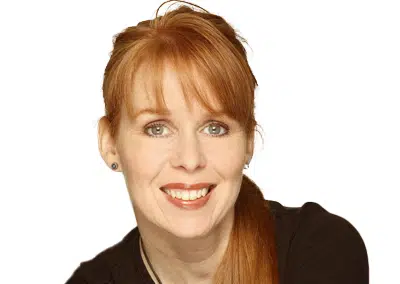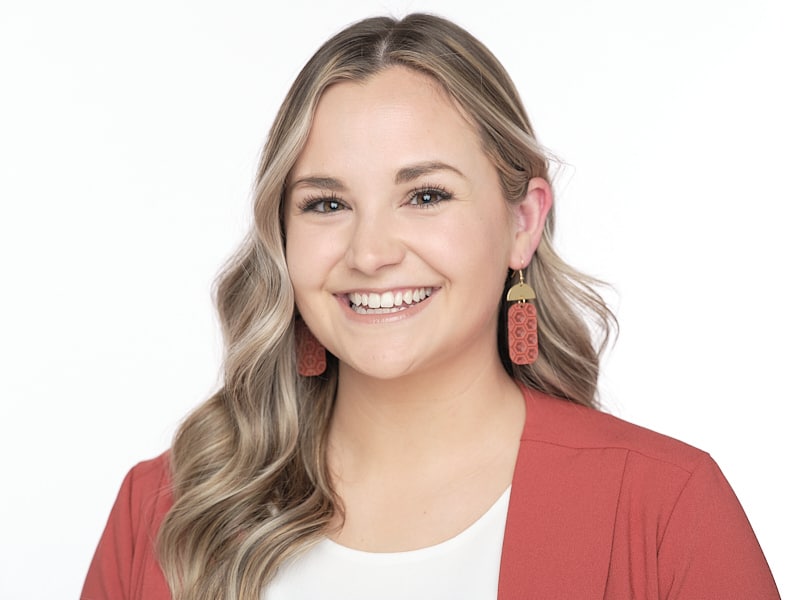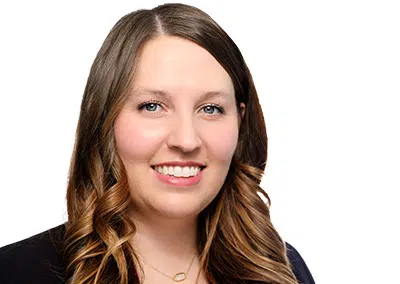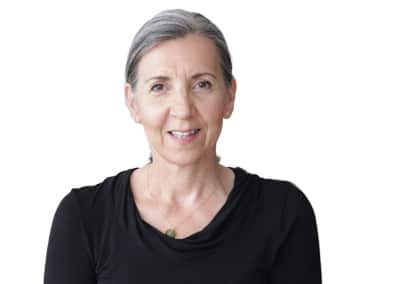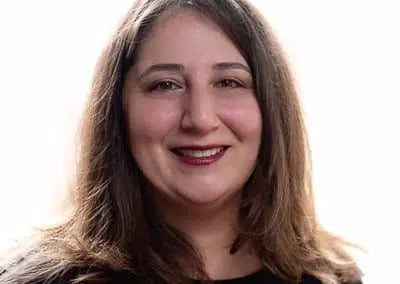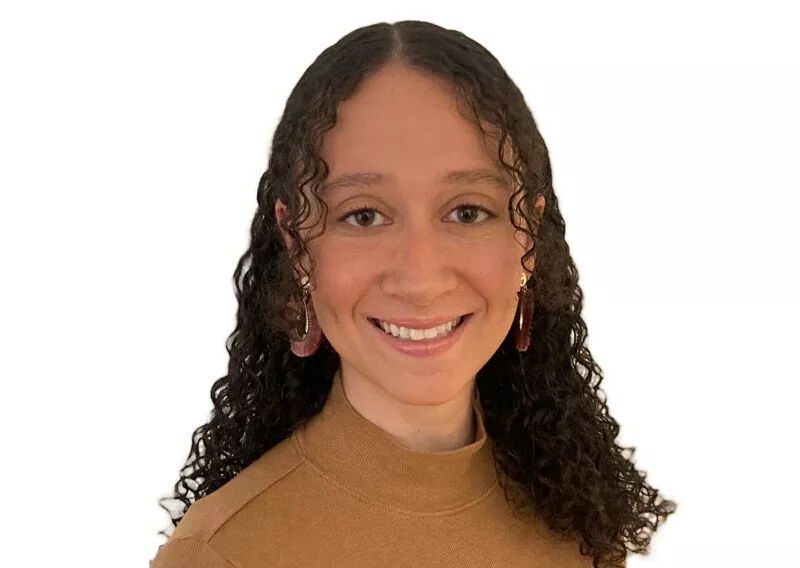
Answers to Your…
Marriage Counseling Questions
Marriage Counseling Questions | Couples Therapy Questions
If you’re considering getting involved in marriage counseling, couples therapy, or relationship coaching you probably have questions! Get your marriage counseling questions answered, right here.
Relationship Advice
Our relationship experts have tons of free, helpful relationship advice on numerous topics to support you both on your journey of growth together. View our relationship advice.
How Healthy Is Your Relationship?
Take our free relationship quiz to discover your strengths and growth opportunities, and get expert recommendations.
When To Get Marriage Counseling?
Was that just a yucky fight? Or is your relationship really in trouble? Here’s how to tell when to get marriage counseling.
What To Expect From Marriage Counseling
Learn what to expect from marriage counseling, from your first free consultation to the triumphant “graduation” from couples therapy.
Relationship Coaching vs. Couples Therapy
What’s the difference between relationship coaching vs couples therapy? Learn about both approaches, and which is right for you.
How to Find a Marriage Counselor
Not all marriage counselors are the same. Getting involved with a bad one can be a disaster. Here’s how to find a good marriage counselor…
Pre Marriage Counseling
Couples counseling before marriage is not the same thing as premarital counseling. Many couples need to grow together before they can move forward.
How Long Does Marriage Counseling Take?
You shouldn’t be in marriage counseling for years. Learn the average length of marriage counseling, depending on your situation, and your relationship goals.
How Marriage Counseling Works
Marriage counseling works, but how? Learn how marriage counseling works, and how the process can help you grow, together.
Does Couples Therapy Work?
Couples who successfully work through rough patches come out stronger than ever before. If you’re wondering, “Does couples therapy work?” read this article for the inside scoop.
Can We Do Marriage Counseling Online?
Online marriage counseling can be incredibly convenient and effective — but not always. Learn when online marriage counseling is the best bet, and when it’s a bad idea…
Can You Do Long-Distance Couples Therapy?
Yes, we provide long-distance couples counseling from all over the world through secure, easy, three-way online video.
Does Insurance Cover Marriage Counseling?
Insurance can pay for marriage counseling (aka, family therapy), but only sometimes. Learn when insurance covers marriage counseling, and when it won’t.
How Much is Marriage Counseling?
Getting expert help for your marriage can be the best, most life-changing decision you ever make. How much do couples therapy and marriage counseling cost? Get all the details, here.
Gift Relationship Help
If you have a loved one who is struggling in their relationship, you can help them get help by “gifting” couples counseling or coaching. Here’s how…
Discernment Counseling For Couples
Before marriage counseling can work, both partners need to want it to work. Discernment counseling helps you resolve ambivalence, and get clarity.
Why Evidence-Based Therapy Matters
Marriage counseling can be a huge waste of time if your counselor doesn’t practice evidence-based approaches to marriage counseling. Here’s why…
Online Couples Therapy
We offer Denver couples therapy and Denver marriage counseling as well as online couples therapy. Learn about our online couples therapy services.
Our Relationship Services
We offer premarital counseling, sex therapy, perinatal counseling, parent coaching, affair recovery, blended family counseling, financial therapy for couples, and more. Learn about all our couples counseling services.
Meet our Relationship Experts
Growing Self relationship experts are marriage and family therapists with specialized training and experience in effective, evidence-based approaches to help couples grow, together. Meet our team of relationship experts…
The Best Marriage Counseling
Curious to hear what others have to say about their experience with “the best marriage counselor?” Read their stories…
Free Resources, For You.
Our experts are incredibly generous and have put together an entire library of free resources and actionable advice to support you on your quest for Love, Happiness, and Success. View our blog + podcast.
More Questions? Let’s Talk.
We’re available by phone, email, and chat, and happy to answer any of your questions personally. Get in touch, anytime.
Start Couples Counseling or Coaching
Ready to begin marriage counseling, couples therapy, or relationship coaching with Growing Self? Start by scheduling a free consultation meeting with the expert of your choice.

Dr. Lisa Marie Bobby is a licensed psychologist, licensed marriage and family therapist, board-certified coach, AAMFT clinical supervisor, host of the Love, Happiness, and Success Podcast and founder of Growing Self.
Deciding to try marriage counseling, couples therapy or relationship coaching is an important decision, and I’m sure you have a lot of questions. I put together this article to arm you with as much information as possible, so you can feel informed and empowered from the get-go. On this page, you’ll find answers to common questions about marriage counseling.
Your Marriage Counseling Questions
Not all couples are in the same space or have the same goals when they start relationship-oriented growth work. So for me to answer your specific marriage counseling questions, I’ll start with a question for you:
What brings you here today?
Marriage Counseling Questions For:
Growth-Oriented Couples
Are you here because you’re part of what I call a “growth-oriented couple?”
Couples that I’d consider growth-oriented are proactive and emotionally intelligent. They feel that working on their relationship is just another positive thing they do — like exercising regularly, working with a financial planner, plotting out shared life goals, or even planning fun vacations.
These types of couples know that relationship coaching or online marriage counseling emphasizes their strengths as a couple and helps them keep their already good relationship healthy and strong through life’s ups and downs. Growth-oriented couples know that couples work is not scary or hard; it’s just incredibly valuable and something that strong couples do.
This type of growth work is already part of your life.
If you’re involved in a growth-oriented relationship, you probably have a lot of experience in working on yourself already. You read books, value self-improvement activities, and look for opportunities to develop yourself in all aspects of life. This type of growth work is already part of your life. You may have had good experiences with therapy and/or coaching in the past — and you might be excited about doing it again now with your partner. That’s great!
If you’re one half of a growth-oriented couple, you probably already know that getting support for your relationship is the right thing to do, and you’re looking forward to this. Now, you’re just looking for the right place. Here are some marriage counseling questions you might be researching as you figure out which option will be best for you:
- How marriage counseling works
- The pros and cons of in-person vs online marriage counseling
- The difference between couples therapy vs relationship coaching
- How to choose a good marriage counselor
- How much marriage counseling costs
At Growing Self, we specialize in helping couples grow together. Our approach to couple’s growth work is probably very much in alignment with the type of “personal evolution” experience you’re seeking. I think you’d be really happy with us. I hope the articles above answer the bulk of your logistical marriage counseling questions, but if not, please get in touch with us by phone, email or chat.
If you’re already feeling like this is a good fit, we welcome you to schedule your first free consultation with the couples counselor of your choice to get this ball rolling. Here is the link to get in touch with us and request your first free appointment (so you don’t have to scroll around looking for it.)
>>> Happy campers please exit to the right >>>
More Marriage Counseling Questions:
Next: Are You Considering… or in Crisis?
Okay. The super-cute “We’re here to grow!” couples have been sorted out… and now that it’s just us left, let’s talk. If you are NOT happy to be here, that is still completely okay. While many of our couples are here because they’re eager to grow together, I am fully aware that many couples don’t get help until they’re in a crisis.
If that’s the case with you 1) I’m sorry, and 2) you’re still in the right place. I have put together information to help you get some clarity and direction about what to do next.
First, which of these is more true for you:
- Couples Counseling Considerers: Maybe you’re feeling a little nervous — and possibly even avoidant — about getting professional help for your relationship. Maybe you’ve been putting this off for a long time. You think you should probably do this…. but you aren’t sure.
- Relationship Crisis: You are here because something bad has happened and you are in a place of desperation. Perhaps it’s been so bad for so long that your partner just asked for a divorce or has thrown down some kind of ultimatum. Maybe you’re recovering from an affair or other betrayal. Perhaps you haven’t had sex in eons, or you’ve just had a category-five fight and it felt like something broke, and you do not know how to recover.
If you’re going through a relationship crisis right now I wish I could hand you a Kleenex and a cup of tea. I can’t, but I can provide you with information to help you get a grip on where to go from here, and make informed choices during an emotional time. That’s what we’re going to talk about next. (You “considerers” can either hang out with us for the ride, or scroll down to the “marriage counseling questions for considerers” section).

Let’s Talk: Start With a Free Consultation
If you’re ready to grow, we’re here to help. Connect with us, and let us know your hopes and goals. We’ll follow up with recommendations, and will help you schedule a first, free consultation.
Marriage Counseling Questions For:
Relationships in Crisis
If This is a Make-or-Break Moment For Your Relationship…
If you are here because your marriage is at a major crossroads — a true relationship crisis like a divorce, or an affair was just uncovered — and you need to get help immediately, you are in the right place. Maybe your partner is even essentially in the process of leaving. We can help you if that’s the case, too.
In situations like this, you are both feeling very raw, and it’s normal to have doubts about the relationship. One of you may be “leaning in” and looking for ways to fix your relationship fast, and the other may be “leaning out” and not sure if they want to continue.
Either way, your biggest marriage counseling question is what to do, specifically, in this heart-wrenching situation. Here’s my advice:
#1. Do “Discernment Counseling” First.
This may sound counterintuitive, but in these situations, it’s often actually not a good idea to jump into marriage counseling or couples therapy where the explicit goal is to improve your relationship. When you’ve been through the wringer, we can’t assume that both of you are still committed to doing the work of relationship improvement. (Because, it’s work).
If you are in a relationship crisis, a specialized form of couples counseling called “discernment counseling” can help you and your partner decide if you want to work on your relationship together, or not. It will take a little bit of time (generally 3-6 sessions) to help you both assess your relationship and understand what will be involved in repairing it.
The purpose of discernment counseling is to clarify each of your motivations to put energy into fixing the relationship. If, over the course of discernment counseling, you both decide that you would like to work on improving your relationship together, you can transition into couples therapy, marriage counseling, or potentially relationship coaching to do that.
The reason why couples counseling, marriage counseling, and relationship coaching are NOT advisable in a real relationship crisis is this: They require a level of commitment to the relationship in order for them to work. If you attempted this type of marriage counseling right now, it would likely make your situation worse instead of better. If your partner is halfway out the door, discernment counseling is your best option.
#2. Don’t Make it Worse.
I know this may not be what you wanted to hear right now but it’s the truth. If your relationship is on the rocks and you are in a panic, looking for somebody to please do something right now… you run a very real risk of pushing your partner further away. If you make them go to couples therapy before they’re committed to the process, it’s likely to fail.
It’s time to slow down. If you want to save your relationship, this is going to take time and a specialized process that will help both of you develop the genuine commitment and desire to make your relationship better first. Discernment counseling or coaching is the way.
If your partner has withdrawn from the relationship and refuses any type of couples counseling, and you fear it may be too late to fix this, I am so sorry that you’re going through this.
#3. Learn and Grow
Here are some other free resources to help you learn and grow. If you can get your partner to listen to them with you, it might help them feel more open to working on this with you:
- A podcast episode about Discernment Counseling
- An article on How to Stop a Divorce and Save Your Marriage
- Another podcast on “When to Call it Quits in a Relationship (Or Not)”
- If all else fails, this podcast covers How to Create an Amicable Divorce (that also talks about the very real and very hard aspects of divorce that are easy to not think about when you’re mad at each other).
I hope those resources help you, and that your partner is willing to at least attend discernment counseling with you. I’d also like you to know that most couples who do discernment counseling find that they do want to work on their marriage. And those who are committed to the ensuing growth process often turn the page into a fresh new chapter in their lives together. I hope that will be true for you, too.
Most couples who do discernment counseling find that they do want to work on their marriage.
Here is a link to learn more about discernment counseling at Growing Self.
#4. Get Help
You can request a free consultation for discernment counseling here. Please mention that you’re interested in discernment counseling when you submit your request form. If possible, do try to have your partner attend the first consultation with you so you can both meet the counselor and learn more about the process together.
If they will not attend with you, I’d encourage you to go on your own anyway.** Sometimes, seeing you work on your side of the relationship can help your partner feel hopeful that change is possible.
#5. Get Effective Help
If you are able to get your partner to go to counseling with you, please be extremely cautious about who you work with. Fun fact: Most therapists offering couples counseling services do not have any specialized training or education in marriage and family therapy. And literally anyone can call themselves a “relationship coach” without any education at all.
If your relationship is in crisis, you likely have one chance to fix this, and who you work with matters. Before you take action, please read this article about “how to find a good marriage counselor” here.
** Side-note: If you begin going to a relationship therapist on your own and get more than one or two sessions in, you will need to find a different therapist to see you and your partner together, should they decide to try couples counseling with you.
An ethical and informed marriage and family therapist would never start providing individual services to one person and then turn it into work with a married couple, because it creates problems around boundaries, and confidentiality, and makes the relationship work LESS likely to be successful. If your therapist offers to do this, it’s a sign that they are not a relationship expert.
I’m glad you found me and these resources today, and I sincerely hope they help you navigate this challenging time.

Let’s Talk: Start With a Free Consultation
If you’re ready to grow, we’re here to help. Connect with us, and let us know your hopes and goals. We’ll follow up with recommendations, and will help you schedule a first, free consultation.
More Marriage Counseling Questions & Answers:
Next: Information for Considerers
Hello! If you scrolled down here, I’m guessing you are in the other camp: Considering Marriage Counseling.
Thank you, by the way, for allowing me a moment to talk to the people in a relationship crisis first. If you were with us through all of that I hope it wasn’t too traumatizing — I’m sure it probably felt a little like hanging out in the Emergency Room with ambulances screaming in and things getting real. We were just in the “Relationship ER” together, and I know sometimes it gets scary.
But you are not in this space, and I’m glad for you. You still have time. You are probably here reading about marriage counseling questions today because you have been wondering if you and your partner need professional help — you think maybe you might — and you’d like to educate yourself about your options.
Maybe you just had a fight with your partner or are feeling fed up about some things. Maybe you want to feel loved and connected. Maybe you’re researching couples counseling questions (and options) to see if it might help. That is fantastic.
What you are doing right this very second IS part of the process of getting involved in couples growth work. Really! Doing anything big requires a “discovery process” first and this is one of those. Nobody accidentally buys a car, or trips and falls into a Denver marriage counseling office. You do your research first.
I am a big believer in the idea that “knowledge is power” and that by educating yourself, you can make important decisions with confidence and clarity. The rest of this page includes resources made just for you.
The Process of Getting Help for Your Relationship
Unless your partner researches everything and makes the appointment for both of you, before anyone gets involved in couples counseling or relationship coaching, here’s what typically happens:
- […. weeks, months, sometimes years of stuff happens ….]
- And then something happened that made you think, “We should do something.”
- You start considering couples therapy;
- You research it and learn about it — like you’re doing right now;
- You think about it some more;
- You forget about it for a while because things are okay-ish;
- You get frustrated or have another conflict;
- You get back online and browse through websites;
- You forget about it again;
- You have another fight, and think, “That’s it! We have to do something!!!”
- You find those links again;
- Armed with information, you go talk to your partner about it and see how they feel;
- Maybe they want to learn about couples therapy first, so you send them some of your links;
- You may or may not have several fights about whether or not to go to couples counseling;
- One of you makes the first free consultation appointment;
- You meet with your prospective couples counselor to learn about them, tell them what’s going on, and see how they would help;
- Then you decide if you want to do couples counseling with them;
- If so, you make your first official counseling appointment and fill out some paperwork;
- Then you meet with your couples counselor regularly until you’ve achieved your goals.
It truly is a process. More than a little bit of the heavy lifting happens before you even make the first appointment. Here’s what to know about that…
Free Advice from a Marriage Counselor
I’ve been a relationship counselor, couples therapist, and relationship coach for many years. I know from first-hand experience that the biggest difference between couples who thrive and the ones that don’t make it is the willingness (and courage) to learn and grow proactively, rather than waiting until a relationship crisis to take action. The fact that you are here means that you have that desire in you. That says a lot about you already.
I’d also like you to know that many times, one person in the relationship is the “instigator” of couples counseling. That’s probably you, too. So to help you — in addition to answering your questions — I’d like to share some ideas and resources for you to take back to your partner.
It’s very easy for couples to not seek help.
The biggest and most important piece of advice for you is this: Getting help for your relationship is important to do. It’s very easy for couples to not seek help. It’s incredibly easy to not do something — especially something that feels potentially hard or anxiety-provoking or if your partner is against the idea. Too many couples put it off, and that’s when relationships become badly, or even irreversibly, damaged.
Of all the marriage counseling questions you might be wrestling with, the biggest and most important ones are the existential ones, like, “Are our relationship issues a big enough deal to get help? Will it get better on its own? What does it mean about us if we go to marriage counseling?”
These marriage counseling questions are completely valid, and genuinely confusing. I mean, how do you know if you should do this? And how could you possibly know what would happen if you didn’t do something?
You are standing in the present looking out into a foggy future. It’s so genuinely hard to make informed decisions from this vantage point.
I am also in the present with you, but I have seen the trajectory of many couples (including my own marriage), from the crossroads at which you are standing now and going into the future. If I were able to go five years back in time and catch some of my marriage counseling couples at this exact moment where you’re standing now, here’s what I’d tell them:
#1. Trust Your Instinct
You’re here reading this today because (on some level) you know that this work is important to do. It’s also really easy to minimize your instincts or to allow them to be minimized by others. That would be a mistake.
Unfortunately, it’s a common mistake. For too many couples, finding a professional couples therapist for help with their relationship feels like a last resort. It’s only after months — sometimes years — of struggling to talk to someone who won’t talk or dealing with frustrations like emotional invalidation that couples finally feel “motivated” enough (aka increasingly worried about their relationship) to take action and get help.
Your good instincts brought you here today, and as far as I’m concerned, your sense that you might need marriage counseling is more than enough reason to do it. I trust your instincts and I hope you do too.
#2. Going Sooner is Always Better
This tendency to delay getting help is understandable. The truth is, though, that couples who are proactive about getting help for their relationship sooner — while they still like, trust, and appreciate each other — tend to have better outcomes in marriage counseling. Trust me: Marriage counseling is much easier and more productive when couples still like each other.
Like untreated cancer spreads, so do negative relationship patterns. When couples wait too long to get help, negative experiences can erode their relationship to the point where there is not enough goodwill or trust left for even the best marriage counselor to piece them back together, even with the kind of experienced, effective, and evidence-based marriage counseling that we provide. They end up in that “Relationship Emergency Room” you read about earlier. And that’s an unnecessary tragedy for everyone. I don’t want that to happen to you, or your family.
If your relationship is heading in that direction and you are feeling worried, but your partner continues to be avoidant, anxious, or minimizing (“it’s not that bad”), please check out the podcast episode, what to do if your spouse won’t go to marriage counseling, or send them this article.
#3. Do Not Make This About Money
Since you’re here to get the inside scoop on marriage counseling and couples therapy, I’m going to get super honest with you and share my unvarnished, real-deal perspective. We’ve made it this far together, so I’m getting personal.
The biggest reason why I ultimately became a marriage counselor is because my husband and I went through a terrible time a few years into our (now nearly twenty-five-year-old) marriage. I genuinely believe that, if we hadn’t connected with a good marriage counselor during that fragile time, we would not have the happy, healthy marriage and beautiful children we do today. We only saw that marriage counselor for a few months, but it changed the trajectory of our lives together.
It was a big deal for us financially, as well as mentally and emotionally. I was the one who initiated it, but he didn’t want to go at first. It took months to make it happen. Actually, I was ambivalent about it, too — especially because of the cost. At the time, I think we paid that counselor $95 per session (she was very kind to offer us sliding scale rates because we were young and broke). I was working as a waitress and my husband was not working; it felt like a lot of money for us, especially since marriage counseling wasn’t covered by insurance. It was a lot of money for us. But somehow, we did it anyway.
We probably had 8-10 marriage counseling sessions and that would have cost about $280-something a month for a couple of months [Learn more about how long marriage counseling takes]. Our rent was around $700 a month, so it was a huge expense for us at that time, especially since a lot of our relationship’s conflict revolved around money. To this day, however, I maintain that those sessions were the very best thing we ever spent money on.
Working on your relationship is not a “cost.” It’s an investment — possibly the most important and valuable one you’ll ever make.
Those couple of months helped us stop fighting with each other, start understanding each other, feel empathy for each other, and grow together again. It was such a positive and impactful experience that it also launched my career.
Since then, we have come a long way and have spent far more money on things far less meaningful than those ten sessions of marriage counseling. Over the last couple of decades, I have probably spent more money on houseplants alone…. that I ultimately killed. But that marriage counseling led to us having a beautiful family, a solid relationship, and a happy life together. I highly doubt we would be in this situation today had we not invested in our relationship all those years ago.
So there it is; that’s my personal story that should demonstrate to you why I believe so strongly in the value of marriage counseling. Of course, I’ve learned quite a bit more over the years — not personally, but professionally.
Working on your relationship is not a “cost.” It’s an investment — possibly the most important and valuable one you’ll ever make.
Having had a front-row seat to countless relationships, and their trajectory over time, here’s another important tip I feel compelled to share:
#4. Do Not Minimize Relationship Issues
So many times over the years with so many different couples, I’ve wished for a time machine so I could go back five years and tell the miserable couple sitting in front of me, “Please go to couples counseling.”
In my imagination, the five-years-in-the-past version of each miserable couple is doing something happy and mundane, like innocently sitting on a park bench eating ice cream cones and watching the ducks. Then, I come storming up to them and start saying uncomfortably intense things like, “You have to do couples counseling right now! By the time you see me in five years, I might not be able to help you!”
It’s probably just as well that I don’t have a time machine. Assuming you’re still several years away from a relationship crisis, though, I do have the opportunity to share this with you now.
One of the biggest obstacles that prevent couples from having strong, successful relationships is thinking their issues are “not that serious,” which causes them to believe they don’t need help.
Many couples feel like they’d be being silly or dramatic by going to marriage counseling when their relationship problems are not catastrophically bad. They think that couples counseling is only warranted if you’re in a truly miserable relationship or on the brink of divorce. They believe that if their relationship isn’t that bad, they shouldn’t go to couples counseling.
Anxiety-based avoidance leads to inaction, which leads to an increasingly distressed relationship, which leads to more anxiety, and so on. Downward. Spiral.
This belief can also cause anxiety in couples that do start to consider marriage counseling. They think, “If we’re going to marriage counseling, this must be really bad!” Then, they delay or avoid marriage counseling in order to manage their anxiety about their relationship — instead of wisely allowing their anxiety to motivate them to take positive action. Anxiety-based avoidance leads to inaction, which leads to an increasingly distressed relationship, which leads to more anxiety, and so on. Downward. Spiral.
The truth is, the belief that marriage counseling is only warranted for seriously distressed couples is not only counterproductive, it’s also flat-out wrong. Couples on the brink of divorce, who are extremely unhappy and have been for a long time, and who have very serious “issues,” often do not benefit from marriage counseling. Couples therapy could have worked years ago, before it got to that point. But back then, it “wasn’t that bad” so they didn’t go, and predictable things ensued. (Scroll back up to the part about discernment counseling for more on this topic.)
It is really, really easy to minimize relationship problems. No couple is “constantly” fighting, and extremely toxic and obviously horrible relationship patterns are not the norm. Even the most difficult relationships have moments where things are okay. It can be easy to let those moments pacify you into inaction. But strong, successful couples don’t minimize issues. They take positive action long before their relationships deteriorate.
#5. Conflict Does Not Resolve Itself
What is much more common than obvious, intense fighting or dramatically bad experiences is what you’re probably experiencing: persistent, underlying, unresolved conflict that bubbles up into an argument or tension before submerging again… then things are okay for a bit, then the conflict re-emerges again. It’s not constant; it’s episodic — but it’s always there, underneath.
During those times when the arguments and/or tension dissipate, it’s easy to say, “Well, yes we have fights, but other times things are okay. So it’s not that bad.” Then you keep chugging along, until it happens again. It’s like that next fight is just simmering under the surface.
If you don’t do something about this you’re going to be a bitter old woman.
— My Former Therapist
I get it. That’s what my husband and I were going through, too, before we got marriage counseling. I cycled through steps 1-14 of that “process of getting help for your relationship” several times.
Then, during a conversation I will never forget, during the 108th (individual) therapy session in which I was complaining about my husband, my therapist leaned over her desk and said, “If you don’t do something about this you’re going to be a bitter old woman.”
First, I was speechless. I mean, I was complaining but I didn’t really think that things were that bad. Then, I thought, “Dang, she’s right.” And then I made the call that changed everything for us. But my therapist had to basically shove me into step #15 because I was still minimizing it to myself. I’m glad she did.
#6: All Couples Need to Grow.
Here is the deal: Recurring conflict about minor things is what happens when you’re not effectively resolving the underlying conflict about major things. Even if you’re not fighting, it’s still there, just waiting to be triggered again. Ongoing, unresolved conflict is what ultimately takes down relationships.
Even if each tangle is not that serious, each new fight takes a chunk out of the trust, emotional safety, goodwill, and positive regard you have for each other. Over time, couples who don’t resolve these conflicts will find they have damaged the fabric of their relationships — sometimes permanently.
All couples have conflicts and things they need to work through. Literally all couples need to do growth work in order to be the very best partners for each other. If you’re not doing that on your own (by reading books, taking classes, etc.), you should consider getting involved in couples counseling or relationship coaching to facilitate this growth work and productively resolve any and all conflicts. They don’t go away on their own.
What is the force that’s going to change your trajectory? You have to create it.
I’d rather have you go for four marriage counseling or relationship coaching sessions, make a few strategic changes, and leave feeling stronger than ever… than see you wait and hope that things will get better. Because, why would they? Just like the laws of physics tell us that things continue in a direction unless they’re acted upon by a force, it’s the same with relationship dynamics.
What is the force that’s going to change your trajectory? You have to create it.
Remember those cute happy campers? They stopped reading this about fifteen minutes ago, and just made the appointment because it was the right thing to do. They took action. That’s why they’re going to keep being cute and happy.
They already knew that this sort of thing is just what happy couples do to grow together, and now you know too.
#7. Find a Good Marriage Counselor
If or when you do decide to take action and get help for your relationship, it’s very important to know one more thing:
Most therapists who offer couples counseling do not have specialized education, training, or experience in evidence-based approaches to couples and family therapy. I know that is crazy to think about, but it’s true.
Therapists who specialize in relationships and family systems are “licensed marriage and family therapists” or LMFTs. Every other stripe of therapist (including LPCs, LCSWs, PhDs, and PsyDs) generally had (hopefully) one graduate-level class in couples counseling and are sent off into the world to do as they will.
“Relationship Coaches” do not require any education or training at all. Literally anyone can call themselves a relationship coach.
If you do decide to get help for your relationship, and I hope you do, please read this article to learn how to find a good couples counselor (and avoid connecting with a bad one) before you make the call. Who you work with can make a big difference in outcomes, and I want you to have a good outcome.
Thank you for indulging me and allowing me to speak to some questions about marriage counseling (including why to go, when to go, and how to overcome obstacles to doing marriage counseling). Maybe some of these were on your mind already, and maybe we talked about some things that you might not have been aware of. To summarize:
- Trust Your Instincts
- Sooner is Better
- Don’t Make This About Money
- Don’t Minimize Relationship Issues
- Conflict Does Not Resolve Itself
- All Couples Need to Grow
- Find a Good Marriage Counselor
Thank you for taking the time to educate yourself, and get answers to your marriage counseling questions. I hope this information helps you make informed decisions for yourself and your family.
Sincerely,

Dr. Lisa Marie Bobby is a licensed psychologist, licensed marriage and family therapist, board-certified coach, AAMFT clinical supervisor, host of the Love, Happiness, and Success Podcast and founder of Growing Self.
Meet a Few of Our Marriage Counselors
Marriage Counseling Questions | Couples Therapy Questions
If you’re considering getting involved in marriage counseling, couples therapy, or relationship coaching you probably have questions! Get your marriage counseling questions answered, right here.
Relationship Advice
Our relationship experts have tons of free, helpful relationship advice on numerous topics to support you both on your journey of growth together. View our relationship advice.
How Healthy Is Your Relationship?
Take our free relationship quiz to discover your strengths and growth opportunities, and get expert recommendations.
When To Get Marriage Counseling?
Was that just a yucky fight? Or is your relationship really in trouble? Here’s how to tell when to get marriage counseling.
What To Expect From Marriage Counseling
Learn what to expect from marriage counseling, from your first free consultation to the triumphant “graduation” from couples therapy.
Relationship Coaching vs. Couples Therapy
What’s the difference between relationship coaching vs couples therapy? Learn about both approaches, and which is right for you.
How to Find a Marriage Counselor
Not all marriage counselors are the same. Getting involved with a bad one can be a disaster. Here’s how to find a good marriage counselor…
Pre Marriage Counseling
Couples counseling before marriage is not the same thing as premarital counseling. Many couples need to grow together before they can move forward.
How Long Does Marriage Counseling Take?
You shouldn’t be in marriage counseling for years. Learn the average length of marriage counseling, depending on your situation, and your relationship goals.
How Marriage Counseling Works
Marriage counseling works, but how? Learn how marriage counseling works, and how the process can help you grow, together.
Does Couples Therapy Work?
Couples who successfully work through rough patches come out stronger than ever before. If you’re wondering, “Does couples therapy work?” read this article for the inside scoop.
Can We Do Marriage Counseling Online?
Online marriage counseling can be incredibly convenient and effective — but not always. Learn when online marriage counseling is the best bet, and when it’s a bad idea…
Can You Do Long-Distance Couples Therapy?
Yes, we provide long-distance couples counseling from all over the world through secure, easy, three-way online video.
Does Insurance Cover Marriage Counseling?
Insurance can pay for marriage counseling (aka, family therapy), but only sometimes. Learn when insurance covers marriage counseling, and when it won’t.
How Much is Marriage Counseling?
Getting expert help for your marriage can be the best, most life-changing decision you ever make. How much do couples therapy and marriage counseling cost? Get all the details, here.
Gift Relationship Help
If you have a loved one who is struggling in their relationship, you can help them get help by “gifting” couples counseling or coaching. Here’s how…
Discernment Counseling For Couples
Before marriage counseling can work, both partners need to want it to work. Discernment counseling helps you resolve ambivalence, and get clarity.
Why Evidence-Based Therapy Matters
Marriage counseling can be a huge waste of time if your counselor doesn’t practice evidence-based approaches to marriage counseling. Here’s why…
Online Couples Therapy
We offer Denver couples therapy and Denver marriage counseling as well as online couples therapy. Learn about our online couples therapy services.
Our Relationship Services
We offer premarital counseling, sex therapy, perinatal counseling, parent coaching, affair recovery, blended family counseling, financial therapy for couples, and more. Learn about all our couples counseling services.
Meet our Relationship Experts
Growing Self relationship experts are marriage and family therapists with specialized training and experience in effective, evidence-based approaches to help couples grow, together. Meet our team of relationship experts…
The Best Marriage Counseling
Curious to hear what others have to say about their experience with “the best marriage counselor?” Read their stories…
Free Resources, For You.
Our experts are incredibly generous and have put together an entire library of free resources and actionable advice to support you on your quest for Love, Happiness, and Success. View our blog + podcast.
More Questions? Let’s Talk.
We’re available by phone, email, and chat, and happy to answer any of your questions personally. Get in touch, anytime.
Start Couples Counseling or Coaching
Ready to begin marriage counseling, couples therapy, or relationship coaching with Growing Self? Start by scheduling a free consultation meeting with the expert of your choice.




